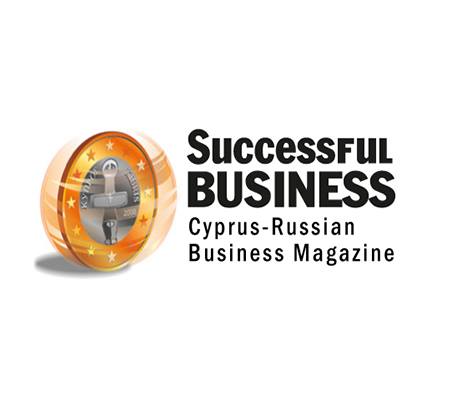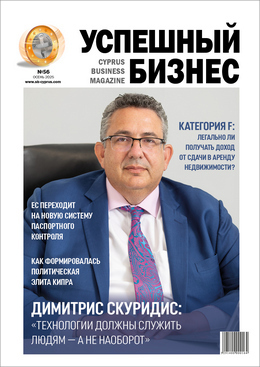How the development of AI and blockchain is changing the business environment in Cyprus, what changes are expected in EU legal frameworks in the near future, and how these will affect local companies – all this is discussed in an interview with Christiana Aristidou, founder of the Ηybrid LawTech firm Christiana Aristidou LLC.
The Hybrid LawTech has extensive experience in the field of emerging technologies. In your opinion, how will the growth of AI and blockchain technologies impact businesses in Cyprus?
Significant changes are expected in the business sector, particularly for companies not traditionally associated with technology. AI will revolutionise industries such as finance, healthcare, and retail by automating processes, making predictions, analysing data for decision-making, optimising operations, and providing better market insights.
Blockchain technology, on the other hand, enhances transparency and security in transactions in sectors like real estate, financial services, and supply chain logistics. A good example is the tokenisation of real estate, where blockchain is used to divide property into digital tokens that can be bought or sold on the relevant platform. This innovative approach will make the often illiquid real estate market more liquid, lower the entry barrier for investors, and improve the transparency of transactions.
However, the adoption of new technologies can bring a range of legal challenges. The use of AI in business raises questions regarding personal data usage, intellectual property, and liability for decisions made based on algorithmic recommendations. In the blockchain space, legal issues arise around smart contracts, crypto-assets, cross-border data transfers, token issuance, and dispute resolution.
You often assist companies in navigating the complex regulatory environment surrounding blockchain and cryptocurrency. What should Cypriot companies focus on in terms of legislation if they wish to implement these technologies?
If companies wish to implement blockchain or cryptocurrency in their operations, they should approach this matter strategically and familiarise themselves with EU regulations. One significant law in this area is the Markets in Crypto-Assets Regulation (MiCAR), which establishes a legal framework for the use of crypto-assets and the operation of exchange platforms. Obtaining licences and complying with the requirements of this law may increase operational costs for companies and startups. Additionally, businesses should adopt Environmental, Social, and Governance (ESG) practices, with particular focus on the UN Sustainable Development Goals. The application of blockchain technology must also comply with international standards set by the International Organisation for Standardisation (ISO) and the European Committee for Electrotechnical Standardisation (CENELEC).
What changes and innovations are expected in the EU legal framework in the near future that will affect Cypriot businesses?
The EU legal framework is indeed constantly evolving, and this impacts the operations of companies in Cyprus. For example, this year saw the adoption of a new EU Anti-Money Laundering Directive (AMLD), which introduces stricter rules regarding the verification and transparency of companies working in real estate, as well as those providing financial, legal, and accounting services, in order to prevent financial crimes.
Additionally, the Digital Operational Resilience Act (DORA) will soon be adopted, affecting all businesses that rely on digital infrastructure. This law mandates increased focus on cybersecurity and IT risk management, which may prove challenging for small and medium-sized enterprises that lack sufficient IT resources.
The EU recently adopted the Corporate Sustainability Reporting Directive (CSRD), which legally enforces ESG practices. This directive impacts a wide range of industries, such as tourism, shipping, and manufacturing. Our team has been directly involved in this legislative area, assisting with the research and development of the Technological Information Sessions (TIS 2024) on climate issues for the Conference of the Parties (COP29), which is held annually by the UN.
You are actively involved in training local and international companies on integrating new technologies within the framework of EU regulations. What challenges do entrepreneurs most often face, and how can they overcome them?
We indeed offer a range of courses in collaboration with professional organisations such as the European Institute of Management and Finance (EIMF) and InfoCredit, as well as independently for large clients – banks, auditing, and law firms.
Companies often struggle to navigate the legal, regulatory, and technical environments. For instance, the legal recognition of smart contracts varies across countries, meaning that in each case, it must be determined whether they meet the traditional requirements of contract law. Moreover, smart contracts are executed on a blockchain and cannot be altered, which conflicts with the European General Data Protection Regulation (GDPR), which includes the right to be forgotten. Work is currently underway in this area on the standardisation of ISO TC-307, in which I participate on behalf of Cyprus. Similarly, there are challenges with digital signatures, as it is important to ensure the correct choice of signature and its recognition across different jurisdictions.
What can entrepreneurs do to address these challenges? First and foremost, they should invest sufficient time and resources to acquire expert knowledge in the legal and technical fields. This can be achieved by hiring qualified specialists or collaborating with professional consultants who are well-versed in the intricacies of EU regulatory rules. Secondly, companies should develop their systems and products in such a way that they can operate across various jurisdictions within the EU. Thirdly, it is essential to carefully monitor data protection in compliance with GDPR and cybersecurity, which includes regular audits and the application of best practices in programming. Fourthly, entrepreneurs need to actively engage with regulatory authorities to stay informed of the latest requirements and apply them promptly. It is advisable to adopt a proactive approach rather than simply reacting to changes. Additionally, using compliance management software can help automate this process.
What are your thoughts on the regulatory environment in Cyprus?
As a European Member State, Cyprus has not that many options when it comes to new regulations and directives. The European Union introduces important directives that are key, and most importantly necessary, for the regulatory framework of the technological industry in Cyprus. For instance, our firm is already advising clients for the upcoming Markets in Crypto-Assets Regulation (MiCAR) which is set to come into full application in December 2024.
What concerns me most is the development of regulatory bodies and the new directives and rules they implement. In Cyprus, we have many companies based here due to favourable tax legislation, and the legal services provided to these companies are mostly tax-related. However, it is also important to address the technical issues faced by entrepreneurs, helping to develop regulation in the technology sector and offering business support in this area. Sometimes these challenges may be undermined by the regulatory bodies that take longer to implement and apply the European regulations and directives in the Cypriot regulatory framework. To illustrate, in some sectors, we have too many rules and directives, while others are almost unregulated. A balance needs to be found. I believe it is crucial to harmonise these five parameters: strategy, policy, standardisation, regulation, and governance.
Currently, about half of the employees in the legal sector in Cyprus are women. Is there a difference between the work of female and male lawyers?
I believe that Cyprus has not made significant progress in this area. We create the impression of being a developed society, but in reality, we are far from it. There is a notable difference between the perception surrounding the work of men and women in the legal industry. Although a female lawyer has multiple unique traits as a woman that are key qualities to perform in this industry, she nevertheless needs to provide more evidence, demonstrate a higher level of expertise, and impress with her achievements more than men. If she wants to hold a position of power and be respected in the industry, she has to dedicate double the amount of effort to stand out much more than a man. The issue, however, is that women do not often help other women in practice. In this industry and given the current circumstances, you would expect women to support and push each other to reach new limits. Instead, there is competition and jealousy amongst women in the legal industry, that hinders our position and the perception around us and our capabilities as lawyers.
What personal qualities influence your work at your company?
Of course, first and foremost, it is my level of expertise in my field. I have been in the profession for 27 years and always strive to grow and conduct research. When I accept invitations to speak at events, I do not fear any questions because I know my subject thoroughly. I prepare meticulously for every meeting without exception, keep my finger on the pulse, study new topics, and continually enhance my qualifications through various seminars and courses. This is crucial in today’s rapidly changing world.
Another of my qualities is sensitivity to people. I consider myself to be very attentive and kind. When making decisions, I try to put myself in the other person's shoes, to understand what they need, what they want to see or hear, and act accordingly. It doesn't matter whether it's a colleague, client, or subordinate. This is why I believe I can be a good leader. Some people see sensitivity as a weakness and claim they can be both tough and sensitive when needed. But that’s impossible – they are deceiving themselves. Empathy and sensitivity cannot be switched on with a magic button; you either have them or you don’t.
I also maintain close contact with regulators. I know how to communicate, negotiate, collaborate, and assist them when required.
Moreover, I take full responsibility for my legal opinions. I conduct a very thorough and in-depth analysis of each situation. I guarantee the accuracy of my legal conclusions before any authority, which is why my clients include banks and other large companies.
It is equally important to be financially honest with clients. I understand that each client has a limited budget, and I discuss this with them before sticking to it. Sometimes, lawyers can involve clients in lengthy processes that constantly force them to spend more money. As a result, the client becomes exhausted by the process, and their business suffers.
I am also invested in ensuring that my business continues to operate even after I step down. If something happens to me or if, in a few years, I transition to consulting and gradually reduce my workload, I want the firm to continue running smoothly. That’s why I dedicate a lot of time to working with my colleagues, employees, and partners.
Christiana Aristidou is a practising lawyer, trainer, consultant, and a member of the Cyprus Bar Association since 1997. She obtained LLB from Kapodistrian University of Athens, LLM in Common Law and in International Commercial and Business Law from the University of East Anglia, and LLM in Computers and Communications Law from Queen Mary College for Commercial Studies. She is the founder, CEO and managing partner of Christiana Aristidou LLC – the hybrid LawTech firm operating in the intersection of law, business, and technology, and science. She has extensive practice in regulatory compliance and reporting to competent regulatory authorities, specialising in legal support for blockchain projects, and is an expert in intellectual property and data protection.







